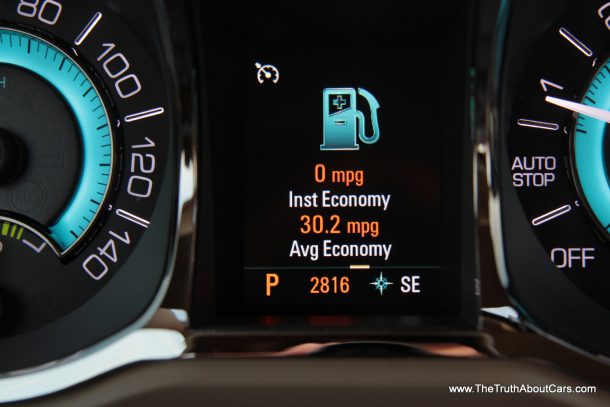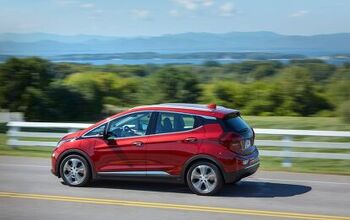Automakers Step Up Battle Against U.S. Fuel Economy Target

As low gas prices persist and electric vehicles fail to find the widespread traction once predicted by the Obama White House, automakers have supercharged their fight against the country’s lofty 2025 fuel economy target.
Fuel prices and the popularity of trucks and SUVs means the federal 54.5 mile per gallon target isn’t reasonable, automakers say. Continuing down the same road and pretending the landscape hasn’t changed? That’s a recipe for disaster, according to industry groups.
According to Reuters, the Alliance of Automobile Manufacturers, a U.S. industry group representing top automakers, will press the U.S. House Energy and Commerce Committee for a U-turn on mileage today.
In prepared testimony, Mitch Bainwol, head of the alliance, says the issue isn’t whether gas mileage will improve. The group wants to know “how will automakers meet the aggressive standards currently in place, by when and at what cost to consumers, industry and the economy as a whole?”
Joining AAM at the committee is the Association of Global Automakers, representing (among others) Honda, Nissan and Hyundai.
Federal agencies and regulators are in the midst of a midterm review of a corporate average fuel economy (CAFE) target set back in 2011. Born in a land of skyrocketing gas prices and great expectations for the emerging field of electric vehicles, the target now finds itself under fire.
In a technical assessment report released in July, regulators gave kudos to automakers. Average mileage for light-duty vehicles has risen greatly, thanks to widespread use of fuel-saving technology. Yay, turbocharging and direct injection, the report read. Boo, pesky low gas prices and those darn crossovers, trucks and SUVs, it added.
On its present course, factoring in the shift away from cars and into utility vehicles, the industry can only expect to reach an average of 50 to 52.6 mpg. Hitting the 2025 target set in 2011 will cost automakers money. In its testimony, the industry group cites an Obama administration estimate of $200 billion between 2012 and 2025.
The ramp-up in CAFE in the last few years before the target date could add significant cost to vehicles. Regulators expect a $894 to $1,017 price bump on American vehicles between 2021 and 2025, and counter criticism by saying fuel savings will offset the price. Those are early estimates, though. Industry groups, including AAM, say recent factors — including zero-emission vehicle regulations in California — put more distance between automakers and the target. It also heaps more potential costs onto their vehicles, assuming the 54.5 mpg target remains in place.
The midterm review wraps up in April 2018, when the agencies will release their final recommendation.

More by Steph Willems
Latest Car Reviews
Read moreLatest Product Reviews
Read moreRecent Comments
- MaintenanceCosts An LA house is a much better investment.
- FreedMike That's a crudload of fast for that kind of money. I wonder if you can shut off the one pedal driving system.
- Tassos Elon’s father was my favourite boss. It’s a shame the wokes in South Africa took away his very-happy workforce. They were always free to leave, we just couldn’t guarantee their safety once they left.
- Tassos If I win this giveaway I will trade my poor but attractive neighbour for pickled herring and aluminum-free deodorant.
- Shipwright One point missed is that part (not sure how much)of the new plant will be built using foreign labour.


































Comments
Join the conversation
If automakers hang tough, band together and keep offering what Americans want, and of course, we keep buying them, CAFE will explode and be gobbled up by the ever expanding DEA. CAFE has no real powers and can only suggest policy. Besides, most Americans want highly fuel efficient vehicles, no matter the size, power and capability.
Luckily the gas guzzler tax only ever hits high-dollar sports coupes/sedans, so they don't affect sales. Automakers want the CAFE to lower the standards, but will go and build exactly what consumer want. Consumers also want trucks/SUVs/muscle/luxury with the decent fuel economy. 2025 CAFE fines are too small to really matter, when you consider the vehicles that'll put them in violation are extremely profitable.